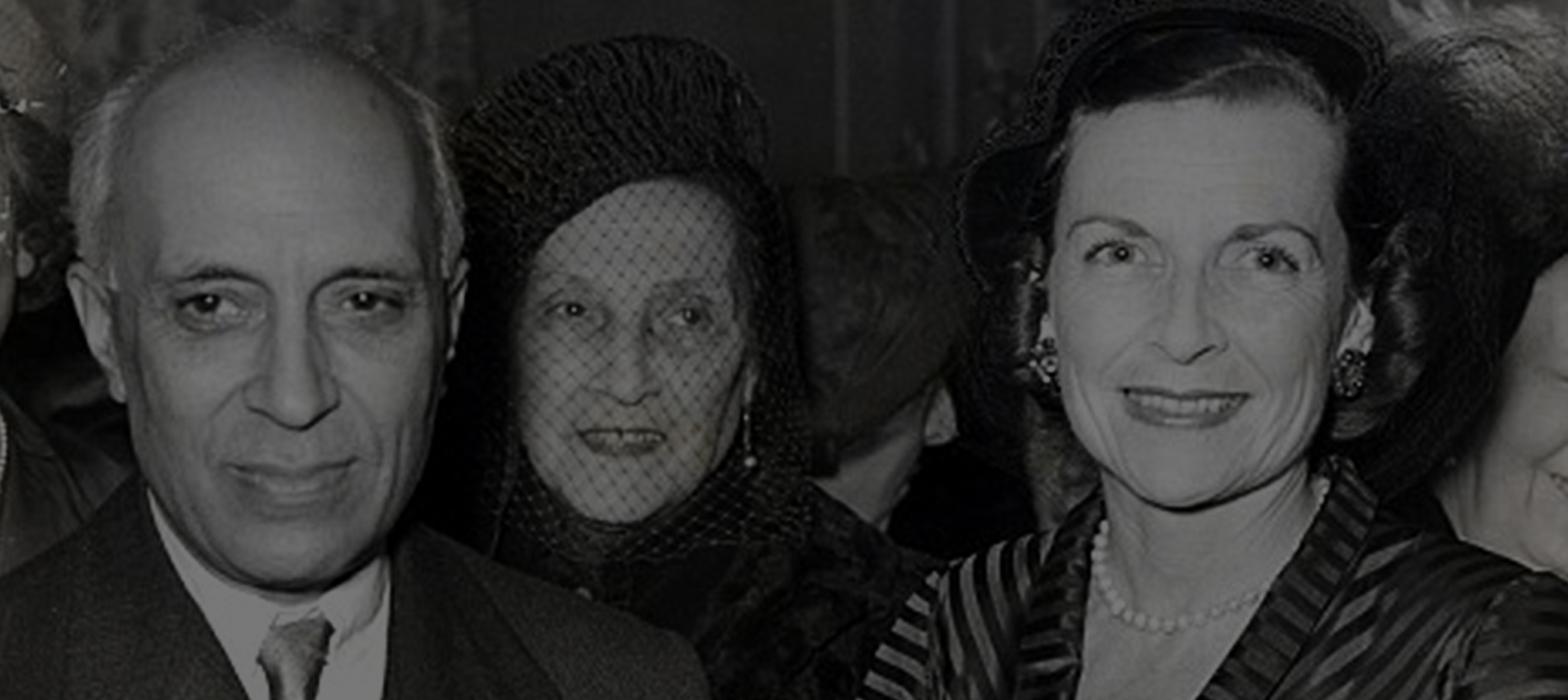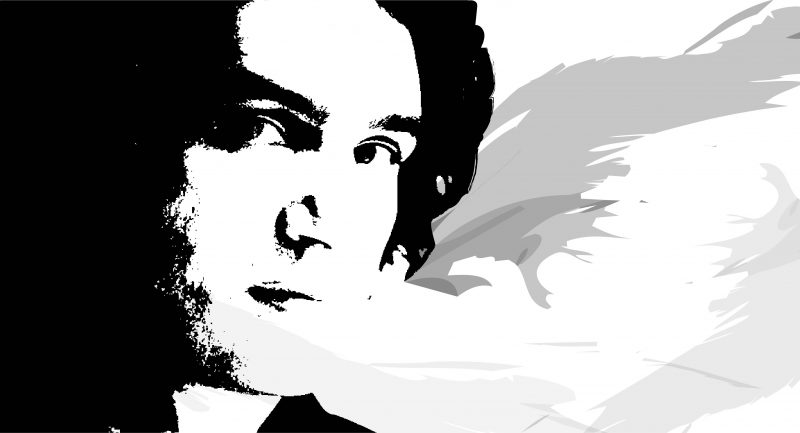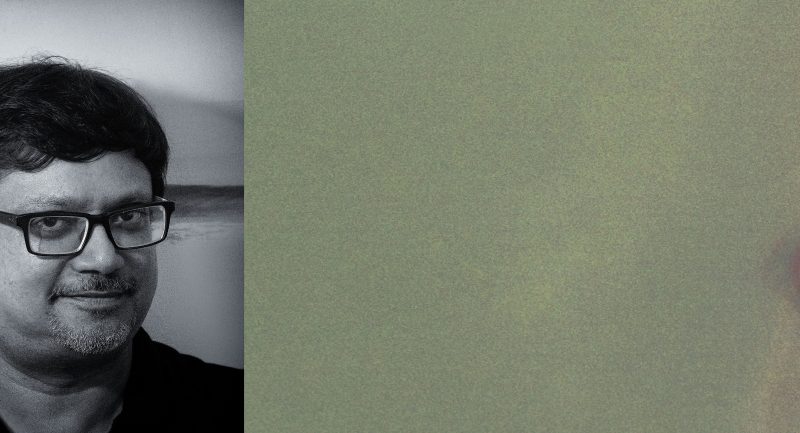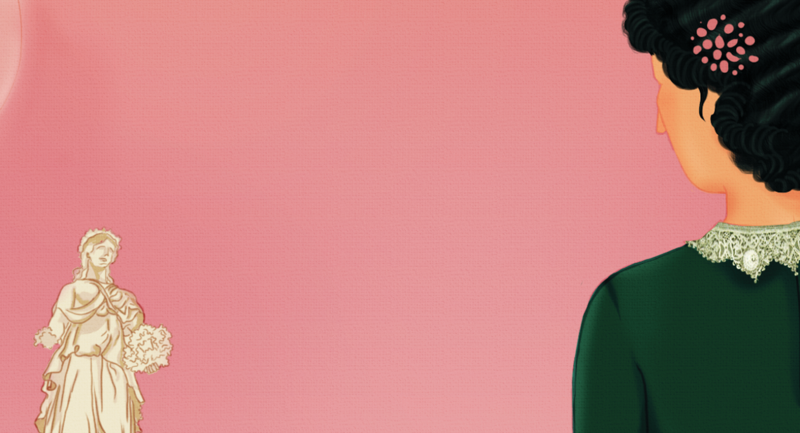
By Rhiannon Jenkins Tsang
I know about historians. I am married to one! They look at the evidence, interpret it and make judgements to give you a balanced and judicious account. If you want a critical assessment of the historical setting in which Jawahar and Edwina developed their friendship, then you need a solid work of history. But if you want to understand the feelings, emotions, personal histories, tensions, contradictions and passion that drove them together, then you need a work of fiction.
The historical novelist does not pretend to be a historian. In some ways the net must be cast wider than that. Not only must a historical novelist have a thorough grasp of the period of the relevant political and social history, but they must also have an understanding of fashion, food and psychology- in sum be a jack of all trades! My aim in writing The Last Vicereine was to transport the reader back to the chaotic last days of the British Raj. I wanted to put the reader in Edwina’s and Jawahar’s shoes so that they could empathise with them and live moment by moment with them in their world. Unlike the historian, the historical novelist is not there to judge or assess, and needs to remember that historical figures and imaginary characters do not have the benefit of hindsight. This requires constant vigilance when writing. People in the novel might attempt to predict the outcomes of certain decisions and calculate their actions accordingly. They might genuinely believe that they were doing the right thing in the circumstances, and be acting out of the best of intentions, but history might judge them to be wrong. Today we all know that partition was a disaster, but no one at the time, neither British nor Indian had a full grasp of the horrendous short term consequences, never mind the long term implications of the decision to divide British India along religious lines.
So how exactly did I go about bringing Jawahar and Edwina to life? I began by avidly reading all the standard history books of the period and general histories of India. I then moved onto autobiographies and biographies particularly of Nehru, Gandhi and the Mountbattens, and supplemented this with as many diaries and memoires as I could get my hands on. The next step was to spend time in the Mountbatten archives going through the papers of Countess Mountbatten of Burma and some of those of her husband, the Viceroy. And finally I undertook a research trip to India so I could truly soak up the atmosphere. Only when I felt I had a full grasp of the locations and historical period and could enter the minds of the key players, did I begin to write.
It was at this stage that I stopped playing historian, pushed aside my own judgements, and put on my novelist’s hat. It was then that history moved from the foreground and took on a different function. It became both background set and plot driver. We know for example that some of Edwina’s letters of Jawahar were stolen in the run up to the transfer of power. What was in these letters? Who had sight of them? How did the characters react and what might have been the political consequences if they had been leaked?
Furthermore, Jawahar and Edwina were characters of their time. Both were born with silver spoons in their mouths and were respectively members of the British and Indian elite. This imposed certain restrictions, privileges, duties and obligations on them that conditioned their world view and actions. They cannot be judged by today’s standards.
While a historian might dread gaps or ambiguities in the record, the historical novelist can turn them to advantage. The blanks and omissions in the record are fascinating and exciting and are where stories lie. What are they hiding? What is missing? What might have been said or not said after a big meeting? Perhaps the minutes don’t exactly tell the full story. What might have happened at the party? What did the gossips say and what were the consequences of rumour and chatter on the political process?
The gaps leave space to imagine and create. For example, we know from the records that Lady Mountbatten had two female English secretaries on her staff. Unlike the men of Lord Mountbatten’s staff neither of them appears to have kept a diary or written or published memoires. Here was my opportunity to create the character of Letticia, Lady Wallace, a widowed school friend of Lady Mountbatten who served on her staff and became my narrator. She was privy to many private conversations, she became our eyes and ears and she took on an exciting and exotic life of her own.
For various reasons the main histories and records have dithered around the relationship between Jawahar and Edwina, partly because it was a private friendship, partly out of respect to the parties involved and also because it has been in the interests of both the British and Indian Congress establishments not to ask too many questions. Nevertheless, it is clear for example that Lady Mountbatten probably played a key role in saving the talks on the transfer of power from complete collapse in Simla in May 1947 and I enjoyed dramatizing this.
Today, with the benefit of hindsight, is easy to ask why on earth India should have been divided in 1947. The first thing to understand it that it was the end of the war. The Japanese had broken the will of the British in the Far East and the British people and State were exhausted. Nehru had spent years incarcerated in British jails and was no longer a young man. Jinnah too was old and probably knew that he was dying. In dramatizing the situation in Viceroy’s House in the spring of 1947, it was clear from my research that British India was in a state of virtual collapse. There had been a complete breakdown of law and order in some areas. The British were terrified, bunkered down with a siege mentality and planning for a mass evacuation of their nationals- to say this is not to absolve the British from their responsibilities.
In my novel, I attempt to reflect the sense that things were spinning out of control, the exhaustion, illnesses and at times sense of hopelessness and futility experienced by Edwina, Jawahar, the Viceroy and his staff. By May of 1947 it was obvious that a solution had to be found and quickly. It is not widely known that shortly after independence there was a real fear that the new government of India might have to be evacuated from New Delhi for its own safety. For a period of time the survival of the new India was in question, and Nehru had to work with Mountbatten as Governor General and the outgoing British administration to ensure the future of the new administration and preserve the illusion of central authority. Given this, perhaps we can understand the kind of pressures Jawahar and Edwina were under, their day to day experiences and the extreme stress they shared together, both of them constantly risking their own lives to serve India. Perhaps if we understand the kind of emotional stress they were under as public figures at an desperately traumatic time, we can they appreciate why they supported each other, why they cared about each other and perhaps also why some decisions were made in the way they were.
What is the truth of the Jawahar Edwina relationship? My own sense is that there was certainly a deep physical attraction but that it was a friendship between two older people based on emotions and the mind. Both would have counted themselves as socialists. They shared interests in art, history, music and poetry and enjoyed riding, swimming and hill walking together. Edwina was also an experienced aid worker before she became Vicereine of India. She was good with people, having a common touch, and worked valiantly to get aid to refugee camps both before and after partition. Again this is not really known in India today. But Nehru saw how hard Edwina worked and appreciate all she was doing for India. Both were public figures with a keen sense of public service and duty and they understood that this came at huge personal cost. Somehow, they managed to carve out a private space for their friendship and to continue to meet, correspond, and support each other emotionally until Edwina’s death in 1960. Perhaps one day, if the full content of the letters between becomes publically available, we will know more. But we will always need historical fiction to bring the past to life. Jawahar and Edwina’s friendship is arguably the greatest love story of the twentieth century. If Shakespeare were alive today, he might not have written Anthony and Cleopatra but rather Jawahar and Edwina.
About the Author
Rhiannon Jenkins Tsang is a British writer. Her work focuses on historical fault lines and themes that are globally significant. She studied Oriental Studies at St. Anne’s College, Oxford, and is a non-practising lawyer. She is fluent in Mandarin and Cantonese.










